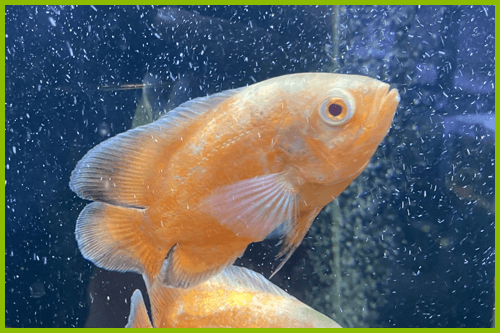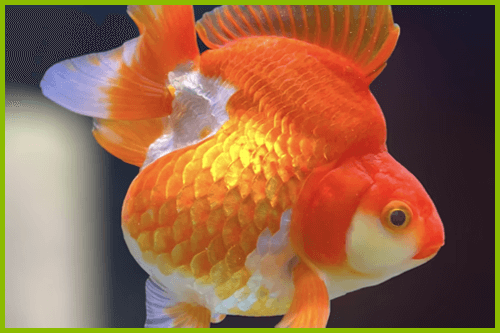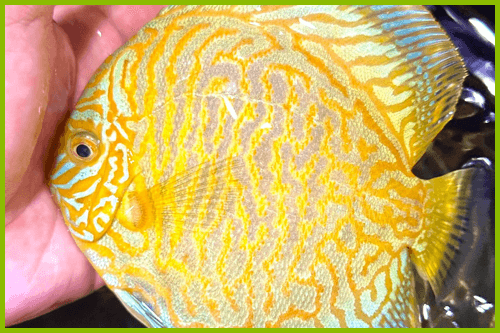


Building a calm, thriving Discus community tank in 2025 starts with choosing the right discus fish tank mates. This guide covers Discus fish compatibility and the best Discus tank mates—from schooling tetras to gentle bottom dwellers—so you can confidently keep fish with Discus without stress or parameter clashes.
You’ll get a quick “what fish can live with Discus?” answer, curated species picks, and practical stocking ideas to help you create a peaceful community.
Creating a peaceful Discus community tank isn’t about filling it with whatever fish catches your eye, it’s about balance. Discus are elegant, sensitive, and slightly shy fish that thrive when surrounded by calm, non-aggressive tank mates that won’t outcompete them for food or disturb their flow.
So, what fish actually work well with Discus? Start with species that share similar water preferences:
These environmental factors are essential, not just for the Discus, but also for ensuring their tank mates stay healthy and stress-free too. Then, filter by temperament, nothing too fast, too bold, or too territorial. You want fish that swim gently, feed respectfully, and let the Discus set the tone.
In short, the best tank mates for Discus are those who move with grace, share their warmth-loving nature, and respect the tank’s quiet harmony.
When it comes to Discus fish compatibility, water parameters are only the beginning. While most people focus on matching temperature and pH (and yes, they matter!), the real harmony in a Discus community tank comes from understanding behaviour, space, and flow—both literally and socially.
Discus thrive in warm water between 28–30 °C, with a soft, slightly acidic profile (pH 6.0–7.0). But it’s not just about matching the numbers, it’s about maintaining them. These fish don’t handle sudden changes well, so stability is more important than perfection. Choosing tank mates that can tolerate, and even prefer. These same conditions are the foundation of long-term success.
Beyond chemistry, building an environment where Discus feels calm and confident is crucial. That means:
You’ll also want to consider tank size and layout. Even peaceful fish can feel crowded in a tight space, and Discus may become territorial or shy. For a proper Discus community tank, aim for a minimum of 200 litres, with open swimming zones and shaded hideouts using driftwood or tall plants.
Read our full article on how to set up a Discus tank.
Finally, never skip quarantine for new fish—even if they come from a reputable source. Discus are particularly sensitive to parasites and bacterial imbalances. A few weeks in a separate holding tank protects your current fish and gives you time to observe and treat if necessary.
Getting the basics right means your Discus aren’t just surviving—they’re thriving. And with the right foundation, we can now explore the best tank mates for Discus fish that complement their personality and environment.
Choosing the right tank mates for Discus fish isn’t just about avoiding the wrong ones, it’s about building a living display that feels calm, natural, and balanced.
When done right, each species in your tank plays a role: some provide movement and energy, others keep the substrate clean, and a few add subtle variety. All while letting your Discus stay front and centre.
So, which fish tick those boxes?
These small, neon-striped schooling fish are almost made for Discus tanks. Not only do they love the same warm, soft water, but their peaceful nature and tight shoaling behaviour help calm nervous Discus. In larger groups (15+), they move as one, creating a natural contrast that makes your Discus glow even brighter.
Rummies are more than just pretty—they’re sensitive to water quality and act like early warning signals. When their red noses fade, it’s a sign your parameters may be off. Their schooling behaviour is tight and purposeful, making them ideal dither fish to reduce stress in shy Discus.
Unlike most Corydoras, Sterbai tolerate the higher temperatures Discus needs. They roam the bottom in small groups, cleaning up uneaten food and keeping the substrate tidy. With their peaceful nature and distinctive white spots, they’re a perfect fit—just make sure you provide soft sand to protect their delicate barbels.
Algae management is essential in a display tank, but many plecos outgrow the role—or worse, develop bad habits like rasping Discus slime coats. Bristlenose Plecos stay compact, do the job quietly, and rarely cause trouble. Please keep it to 1 or 2 per tank and provide driftwood for grazing.
If you want to add something beyond the usual tetras, German Blue Rams bring beauty and charm. These dwarf cichlids are peaceful, thrive in warm water, and can form strong pair bonds. They prefer a well-structured tank with hiding spots and do best in established systems with clean, stable parameters.
To complete your tank from top to bottom, consider Hatchetfish. They gently move the water’s surface without intruding into the Discus’ space. Be sure to have a tightly covered tank—these fish are notorious jumpers.
Each of these species has earned its place as one of the best Discus tank mates not just for compatibility, but because they make your community tank feel alive, stable, and relaxing. As we’ll explore next, choosing wisely also means knowing which fish to avoid, no matter how attractive they may seem.
Not every peaceful fish is a good fit for a Discus community tank—and sometimes, even “semi-compatible” species can cause long-term problems that disrupt the harmony of your aquarium.
Discus are sensitive not just to water quality, but also to energy levels in the tank. Anything that stresses them—sudden movements, competition for food, or unwanted aggression—can lead to stunted growth, colour loss, or even illness.
Here are some types of fish to avoid with Discus, and why they’re better left out of the equation:
Their constant chasing and biting may not seem deadly at first, but over time, they’ll stress your Discus out of eating, reduce their immunity, and damage their beautiful fins. Even in large schools, they often revert to bad behaviour.
While they may not be aggressive, species like Giant Danios or many Rainbowfish move too erratically. Their hyperactivity unsettles the calm, gliding nature of Discus, especially during feeding time.
Many beginners assume all Plecos are algae eaters. Still, large species like the Common Pleco quickly outgrow the tank, produce massive waste, and may latch onto Discus at night—damaging their sensitive slime coat. Stick to Bristlenose (Ancistrus) varieties instead.
Discus are cichlids, but not built to compete with aggressive cousins. Large South American or African cichlids often dominate feeding, guard space aggressively, or even injure tank mates. Avoid mixing them, even in large aquariums.
This one might surprise you. Angelfish and Discus share similar water parameters and hail from the Amazon, but they also compete for food and space—and Angelfish can become quite territorial. Worse, they may introduce pathogens that Discus are highly vulnerable to. Strict quarantine and extra space are essential if you’re set on trying this combo.
Choosing fish to avoid isn’t about limiting your options, it’s about protecting the serene environment your Discus need to thrive. The wrong tank mate might not cause problems on Day 1, but over weeks and months, subtle stress builds up.
In the next section, we’ll look at how to combine the right tank mates to build a community that flows together beautifully—without friction.
So, you’ve chosen the right tank mates for Discus, but how do you bring them together into a community that not only looks stunning but also feels peaceful? The secret lies in balance.
The goal is to create a layered, interactive tank where each fish has a role without stepping on the others’ fins. Here are a few calm, proven stocking combinations that work well in tanks starting from 200L (55 gallons) and above:
Option 1 – Classic Discus & Tetra Harmony:
Note: This setup feels cohesive and safe—perfect for first-time Discus community keepers.
Option 2 – Colourful & Social Display Tank:
Note: More visual interest, without adding chaos. You get top-to-bottom life without overcrowding.
Option 3 – Breeder-Friendly with Calm Companions:
Note: Perfect if you’re focused on breeding Discus in a community tank without too much disruption.
When in doubt, always stock Discus first and allow them to settle before gradually adding other fish. Introduce tank mates in batches (with quarantine!), and observe closely how your Discus responds.
Calm, confident Discus will eat well, glide smoothly, and show strong colouration, your best sign that your stocking choices are working.
Even with the perfect Discus tank mates, your setup and daily habits ultimately decide whether your community thrives or survives.
Discus are peaceful, but they’re also incredibly perceptive. They notice everything: sudden lighting changes, leftover food, aggressive feeding from tank mates, even vibrations from the room. That’s why creating a calm, stable environment isn’t just about what you put in the tank—it’s about how you care for it.
Here’s how to keep your Discus community tank harmonious:
It’s a question many hobbyists eventually ask: Can you successfully breed Discus in a community tank? The answer technically is YES, but it depends on your goals and your expectations.
Discus are known for their fascinating breeding behaviour. A bonded pair will clean a flat surface, lay eggs, and even care for the fry by secreting a skin mucus that baby Discus feed on. However, this delicate process becomes much harder to manage in a community setup.
Here’s why breeding in a community tank is challenging:
That said, some experienced hobbyists have success with semi-isolated breeding zones within larger tanks. This can be done using:
However, a dedicated breeding tank is always safer for those serious about raising fry. It gives you full control over water parameters, feeding schedules, and fry development without the unpredictability of tank mates.
Suppose you’re starting, or your priority is a calm and beautiful display tank. In that case, it’s better to enjoy your Discus in a peaceful community and leave breeding for a later, focused setup.
Building a peaceful Discus community tank means more than mixing species with similar parameters. It’s about creating a space where every fish coexists in harmony, no one rushes, chases, or competes, and your Discus can glide gracefully without fear.
At OZ Discus, we’re not just fish lovers but passionate about helping hobbyists like you build thriving aquariums with confidence. From healthy, hand-selected Discus to expert advice on stocking and care, we’re here to help you every step of the way.
Explore more fish care articles, ask us questions, or browse our collection.
👉 Explore Fish Care Articles
👉 Shop High-quality Ornamental Fish
The information provided in this article has been generated by the OZ Discus AI, OZ Discus Bot. While we strive to provide accurate and helpful guidance, it is important to recognise that the content may not cover all aspects of choosing and caring for Discus tankmates.
If you require further assistance, we highly recommend contacting OZ Discus directly for personalised advice and support. Remember that the well-being of your Discus fish is of utmost importance, and expert guidance can make a significant difference in ensuring their health and happiness.
OZ Discus is not liable for any losses and holds no responsibility in the event of the death of the fish. Users of this guide are to use the information at their own discretion and accept all risks resulting from the use of this guide.





All the photos you see on our products are what we have in store.
We do not use any stock photography that misrepresent the fish.
Most of our photos are shot without filtering to try give you the truest beauty and colour of the fish we have.
Any filters we do use are to account for factors that reduce the colour when taking the photo, such as bad lighting.
We fix using a quick filter to represent the Discus’s real life colour; best as we are able to by eye. These photos are clearly marked as being edited in ‘PhotoRoom’.


OZ Discus imports from international awarded, show grade, premium Discus breeders.
Each of these breeders are proud to stand behind the fish they supply to us.
By knowing details about the farm and fish, we are able to ascertain the age and breeding line to ensure the highest quality fish are available to you.
View our latest imports from IP Discus, Jagger Discus, Unique Discus, and more!


OZ Discus is an independent Sydney store and as such has to uphold important corporate responsibilities.
When you buy from OZ Discus, you get peace of mind that we meet strict RSPCA and AIAA certifications and COVID-19 practices.
We also have dead on arrival (DOA) and returns policies and practices that give you confidence in your purchase.
We hope that you find our range of Discus fish suitable to your pursuit in this very rewarding hobby.

We import from the following breeders and each of these breeders are proud to stand behind the fish they supply to us. By knowing details about the farm and fish, we are able to ascertain the age & breeding line to ensure the highest quality is available to you.
– Tony Tan – IP Discus Malaysia
– Dendy Wijaya – Jagger Discus Indonesia
– Robert Lim – Unique Discus Malaysia
– Lee Chee Fong – Color Fish Malaysia
– Yap Wen Khong – Malaysia
– Koay KL – JIT Laiseng Discus Farm Malaysia
– Dr Teoh – Malaysia
– Julian Sockich & Kephra Richards – East Coast Discus Australia
– Alex Piwowarski – Piwowarski Discus Germany

All photos you see are what we have in store and we do not use any stock photography that misrepresent the fish. Also, our photos are taken straight from a smartphone too without filtering to give you the truest beauty of the fish we have.

We are Independent and have the importance of corporate responsibilities of a Physical Store
OZ Discus is an independent STORE, as well as an IMPORTER in Sydney of Discus fish only and this allows us to source select strains from the Worlds most renowned Discus farms to you.
Moreover, buying from us as an aquarium shop instead of home operators gives you peace of mind. We uphold social and corporate responsibilities in meeting
– RSPCA
– AIAA
– COVID-19
certification and practices.
We also have DOA and returns policies and practices that gives you confidence in your purchase. I hope you find our range of Discus suiting to your pursuit in this very rewarding hobby.
